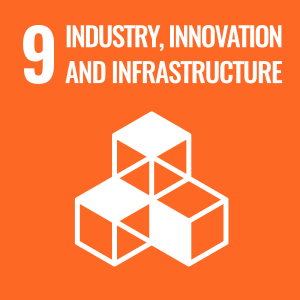Cybersecurity for citizenship: Training
OBJECTIVES
Thanks to the success of Bilbao WiFi, the City Council is in a privileged position to create new cyber-defense systems for its citizens, who can be individually alerted of the risks observed in their terminals and devices.
Basically, it is a matter of taking the concept of security offered by the Police in the world of atoms to the world of bits in cyberspace.
Bilbao WiFi detects and blocks malware, but citizens are not notified of these blocks, so the malware will remain fully operational when they connect to their mobile network or any other WiFi network.
Enabling this service (freely available to individuals) will allow citizens to be alerted that malware is observed in their traffic and that they should contact an expert center and/or install defensive measures. To solve this situation, Bilbao is launching a Citizen Cybersecurity Project.
DESCRIPTION OF ACTIONS CARRIED OUT
The Cybersecurity Project has become a key priority in the Bilbao City Council’s citizen security policy.
Security on the network is a critical element for society in general and for citizens in particular, insofar as 20% of crimes already occur online and despite this, cyberspace remains a place that is not particularly protected for citizens by public authorities.
This Cybersecurity project is based on the creation of a real-time information platform to identify and block digital threats and inform each person individually and in real time of latent threats detected on their device. The project also integrates a Cybersecurity Awareness and Training Plan for Citizens, to provide them with tools for their protection in the digital world.
The project team has conducted seven workshops to test the key elements of the project (warning system, training, and communication) with the following target groups: – Seniors, – University students, – Teenagers, – People with functional diversity, – Professionals, – Citizens. 121 people participated in these test actions.
KEY SUCCESS FACTORS
The project covers a security area that is not particularly protected by the public authorities, which to a large extent continue to think almost exclusively about security in the physical world.
It integrates a Cybersecurity Awareness and Training Plan, in order to provide citizens with tools for their protection in the digital world.
MAIN RESULTS ACHIEVED
As a result of citizen feedback, several improvements were made to the prototype, some of which are as follows:
– Simplification of the enrollment and login process.
– Integration of a complaint report to the alert message, facilitating the legal process.
– Improvements in the explanation of privacy and how the City Council cannot (and does not try to) access personal information on the device.
– To ensure the success of the Cybersecurity service, design of a Communication Plan that was contrasted with the participants.
In relation to the second line of action of this Project: A Training Program was designed, contrasted with the participants and structured in three branches of knowledge: digital competences, digital identity and personal cybersecurity. Within each family, the topics about which citizens have a greater knowledge are:
– Application security and digital rights
– Personal data protection and fingerprinting
– Backup and use of passwords, device updates
The questions you would like to know more about are:
– Application security
– Personal data protection
– Safe shopping on the Internet and prevention of online scams
As a conclusion, it was deduced that, in general, participants have less knowledge about digital identity and conflict notification and telematic complaint process: personal cybersecurity.
Also, from Bilbao, the interest of this Project and its transferability to other national and international cities, such as Vienna, Amsterdam, Barcelona, Madrid, Malaga, Valencia, San Sebastian, Vitoria, Logroño, Dusseldorf, Monterrey, Moscow, Philadelphia, Prague, Quito, Santiago de Chile, Turin, was contrasted.
In recognition of the project, Bilbao was a 2021 Global Mayors Challenge Finalist City. Cybersecurity. Headings presented:
– Platform for the identification and blocking of digital threats detected in the municipal WIFI network, and in turn, inform the affected of the existence of such threat.
– Awareness programs and training programs for citizens. With this result, Bilbao was among the fifty cities around the world selected for its ideas in global innovation and transformative urban solutions that have emerged during the COVID-19 pandemic.




